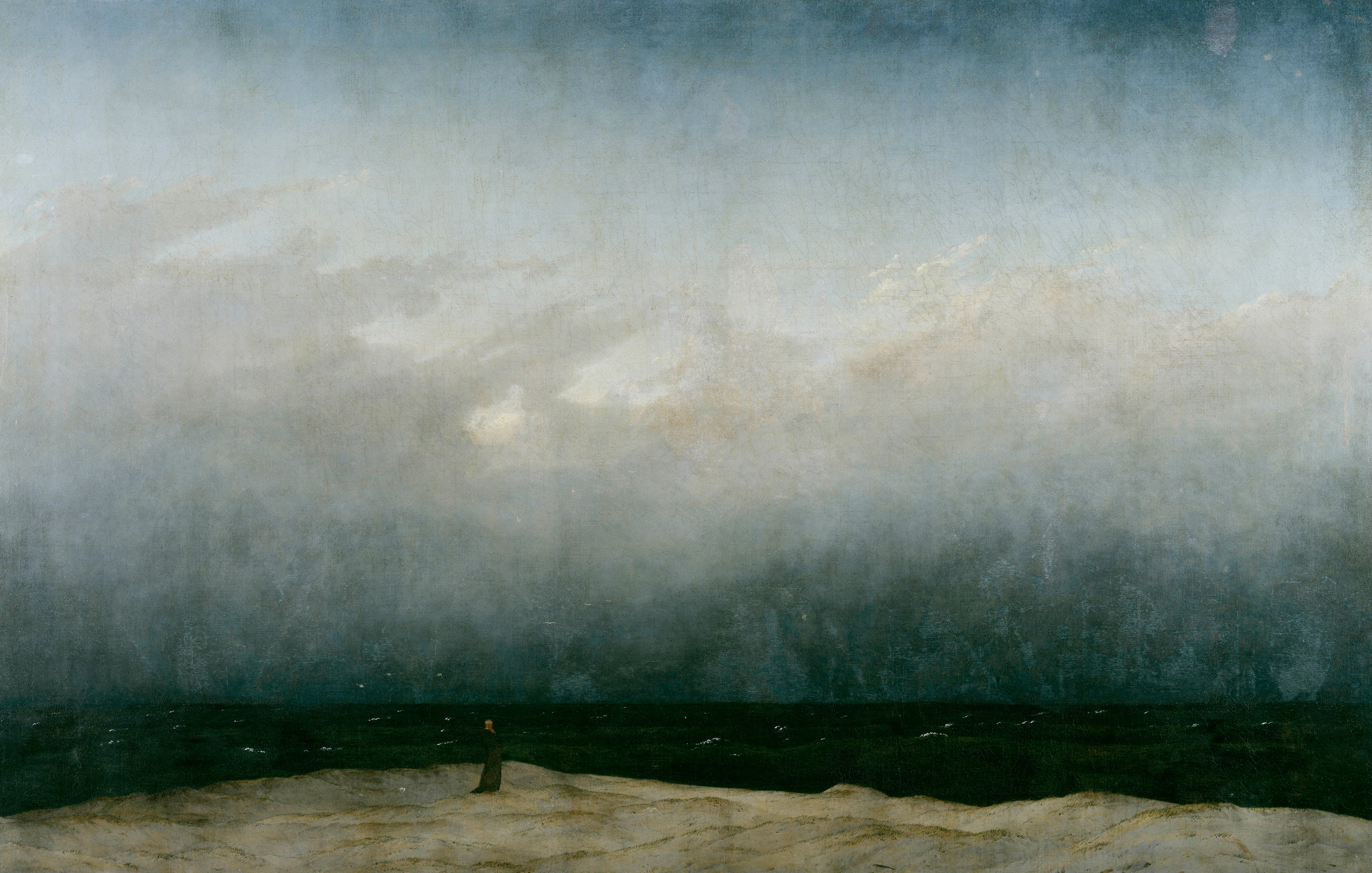George Ferdinand Posca: A Mysterious Composer
 |
| Der Mönch am Meer by Caspar David Friedrich (1774–1840) in the Alte Nationalgalerie Berlin |
An unsung composer?
Obtaining detailed information about the life and compositions of George Ferdinand Posca can be quite a challenge. While some of his works can be found on IMSLP, a deeper exploration into this composer's background remains elusive.
Posca's musical style has drawn comparisons to the renowned Russian composer Glinka and Clara Schumann. Listening to their compositions side by side, one might wonder who influenced whom.
Some fragmented details about George Ferdinand Posca emerge on the web, primarily on the Web of Unsung Composers.
The Life and Musical Journey of George Ferdinand Posca
George Ferdinand Posca, a composer shrouded in mystery, was born on the 7th of November in the year 1848. His place of birth was Neuberun, nestled within the historic Province of Posen, a part of the Prussian Empire at that time. Born into this world, George's life was profoundly influenced by his parents, Ferdinand Posca (1812 – 2/12 1894) and Pauline Posca (Knobloch) (1815 – 1890), who played pivotal roles in shaping his destiny.
At the tender age of 17, on the 28th of April in 1866, George embarked on a transformative journey across the Atlantic. Departing from the bustling port of Hamburg, he set sail for the promising shores of New York aboard the vessel known as the Germania. Notably, he made this voyage in the second-class accommodations, setting the stage for his aspirations and adventures.
In the records of his time, George Ferdinand Posca was identified as a "Kaufmann," a term that translates to "merchant" in the English language. His roots were firmly grounded in Striegau, Preussen, where he held residence in his native Germany.
George's love for music led him to pursue piano studies under the tutelage of Otto Thieme for a span of three years. Otto Thieme, like George, was originally from Germany and had also embarked on the journey of emigration, eventually settling in the United States after departing from Hamburg.
His musical odyssey took a significant turn when he commenced his studies at the prestigious Music Conservatorium in Leipzig on the 4th of October in 1872. These studies, marked by dedication and passion, culminated in his graduation during the Easter of 1876. Interestingly, he arrived in Leipzig from Fort Madison, Iowa, adding an international dimension to his education.
Intriguingly, George's father, Ferdinand Posca, held a position with royal connotations in Striegau, Schlesien. This location, now known as Strzegom in Poland, presents an intriguing connection within George's familial history.
Delving further into the enigmatic aspects of his life, we encounter the curious case of Julius Louis Georg Posca. Born on the same date as George, November 7th, but in the year 1847, this individual resided in Hamburg and was recorded to have married Agathe Louise Alwine Lange in Striegau, Preussen, on the 30th of July in 1883. This discovery prompts questions regarding potential discrepancies in names, birthdates, or familial ties.
Adding to the complexity, there exists a mention of a Louis Posca, aged 36, who arrived in New York from Bremen on the 19th of October in 1885, accompanied by his wife Anna Posca. Could this be an alternate identity or an entirely separate individual with connections to the Posca family?
As the chapters of George Ferdinand Posca's life unfolded, his locations and activities evolved over the years:
From 1884 to 1923, he was associated with the Akademie für Klavierspiel, situated at Gerhofstrasse 9 in Hamburg.
Subsequently, from 1924 to 1933, the name "Gorge Posca" appeared in association with the Tonkünstler and was located at gr. Theaterstr. 31 in Hamburg.
An Enigmatic Legacy
Turning our attention to his musical legacy, here's a succinct overview of the compositions attributed to him:
In 1878, he unveiled Opus 1, a collection titled "Drei Lieder für 1 Singstimme mit Pianoforte." This debut work was published by Luckhardt in Berlin, marking the beginning of a musical journey. Subsequent compositions, Opus 2 through Opus 4, were also brought to the world through Luckhardt.
Around 1881, Opus 7 emerged, published by Jean Harding in Hamburg. Notably, Harding's imprint extended to Opus 9, 12, 14, 15, and potentially 19 and 20.
The year 1890 witnessed the publication of Opus 21, an important chapter in his creative repertoire, published by Ollendorff in Berlin.
Continuing his musical exploration, George presented Opus 27 in 1899, which found its way to the world through Meyer in Hamburg.
George Ferdinand Posca's life, marked by migrations, artistic endeavors, and a tapestry of compositions, remains an intriguing chapter in the annals of music history. As we unravel the enigmatic threads of his existence, his legacy endures through the melodies he left behind.
Explore Posca's Musical Treasures
Unfortunately, the publication details for Opus 28 ("Vier Lieder") and Opus 31 ("In der Dämmerung") remain unclear. However, it's worth noting that Posca's Opus 31, No. 1, was featured in the magazine "Etude" in October 1916, where he was described as "a successful contemporary writer, with a European reputation. He excels in drawing-room pieces of the best class."
Regrettably, information about his other opus numbers remains elusive.
For those interested in exploring his compositions, here is a link to "Am Strande," Op. 8, No. 2, along with additional pieces on Musescore.



0 $type={blogger}:
Post a Comment